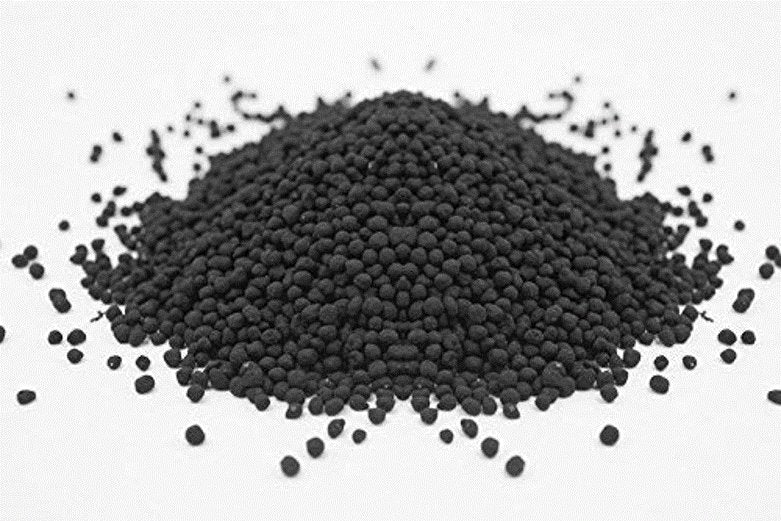Recommended: 10 Substrates for Planted Aquariums
Posted on July 03 2024,

Choosing the right substrate for a planted aquarium is important. Its structure will determine how easily the plants take root. Some of them also provide them with nutrients and encourage beneficial bacteria.
Here are 10 substrates we like for planted aquariums. We weren't paid anything for this list, and we don't use affiliate links. We just like them!
1. Ultum Nature Controsoil Freshwater Planted Aquarium Substrate (pictured above)
2. Carib Sea Eco-Complete Planted Black Aquarium Substrate

Carib Sea Eco-Complete consists of rich, basaltic, volcanic soil that provides major and minor trace elements for nitrifying aquatic plants. The substrate is rich in iron and eliminates the need for laterites. Its grains are highly porous and contain Heterotrophic bacteria for converting fish waste into nutrition for plants. Carib Sea Eco-Complete is suitable for freshwater planted aquariums, and promotes the health and growth of plant roots. It is free from artificial dyes and chemicals, but can slightly affect the pH of tanks with high water movement. It should be used carefully with shrimp.
3. Fluval Plant and Shrimp Stratum

Fluval Plant and Shrimp Stratum is made of volcanic soil mined from the foothills of the Mount Aso volcano in Japan. The substrate is rich in minerals that promote aquatic plant growth. It allows plants to take root throughout the substrate. Its addition will make the water pH neutral to mildly acidic, creating a suitable environment for shrimp. Newborn shrimp can shelter themselves in the substrate as well. Nitrifying bacteria will flourish in its porous structure, converting waste into nutrients for the plants. Fluval Plant and Shrimp Stratum also helps to control organic discoloration of water.
4. Caribsea Super Naturals Aquarium Sand

Caribsea Super Naturals Aquarium Sand is for planted aquariums with a sandy bed. Its grain size reduces the build-up of detritus, and minimizes the chances of trapping food particles and waste in the bed. It won’t affect the water pH. Caribsea Super Naturals Aquarium Sand is suitable for most freshwater and marine tanks, as well as African cichlid aquariums. The substrate is free from any chemicals, such as paints and dyes, and is safe for plants and fish. You can use root tabs for plants with larger roots.
5. Carib Sea Arag-Alive Fiji Pink Sand

Carib Sea Arag-Alive Fiji Pink Sand is for planted aquarium with marine water setups. It consists of aragonite, which looks aesthetically pleasing while being functional. The substrate has marine bacteria that benefit the aquarium’s ecosystem by compressing ammonia cycles for improved biological filtration. They assist in breaking down waste at a fast pace for reducing ammonia and nitrites. It helps to maintain suitable water pH levels without the need for additional chemicals. Carib Sea Arag-Alive also discourages the growth of algae.
6. Nature’s Ocean Bio-Activ Live Aragonite for Aquarium

Nature’s Ocean Bio-Activ Live Aragonite is completely natural and prevents biofouling in fish tanks. The substrate has live marine bacteria that remove ammonia and nitrites that can be toxic to fish. Nature’s Ocean Bio-Activ Live Aragonite has essential trace elements that assist in the growth of plants. It maintains pH level and instantly cycles nitrogenous waste.
7. Imagitarium Black Aquarium Sand

Imagitarium Black Aquarium Sand is another product for creating sandy beds. It is black sand that can be used in freshwater and saltwater fish tanks. The structure of the sand promotes the growth of beneficial bacteria. They assist in breaking down waste and removing toxic substances like ammonia and nitrites. Most aquatic plants will take root easily in the Imagitarium black sand. It is also available in white.
8. Mr. Aqua N-MAR-066 Fine Water Plant Soil

Mr. Aqua N-MAR-066 Water Plant Soil contains both organic and inert ingredients, and is fertilized for providing essential nutrition to aquatic plants. The plants will root firmly in the porous granular structure of the substrate and won’t move with water current. It counters water contamination due to driftwood and also softens it with a buffering pH capacity of 6.6 to 6.8. Mr. Aqua N-MAR-066 Water Plant Soil will last for 12 to 18 months.
9. Seachem Flourite Black Clay Gravel

Seachem Flourite Black Clay Gravel is a stable porous clay gravel that has been specially fracted for freshwater aquariums. The gravel is suitable for live plants, but can also be used in fish tanks without plants. It doesn’t require any gravel modifiers, although you can mix it with other gravels. You can use it with an under-gravel filter as the gravel won’t decompose or soften. Seachem Flourite Black Clay Gravel is free from chemicals and doesn’t affect the water’s pH.
10. CaribSea Coraline Aquarium Gravel

CaribSea Coraline Aquarium Gravel promotes the growth of corals by maintaining a pH value of 8.2. It facilitates the free flow of nutrients to promote nitrifying bacteria, getting rid of ammonia and nitrites in the water. Plants will take root easily in the crushed substrate. It is free from any toxic impurities or purities, and is safe and healthy for the aquatic life in your saltwater tanks.


0 comments